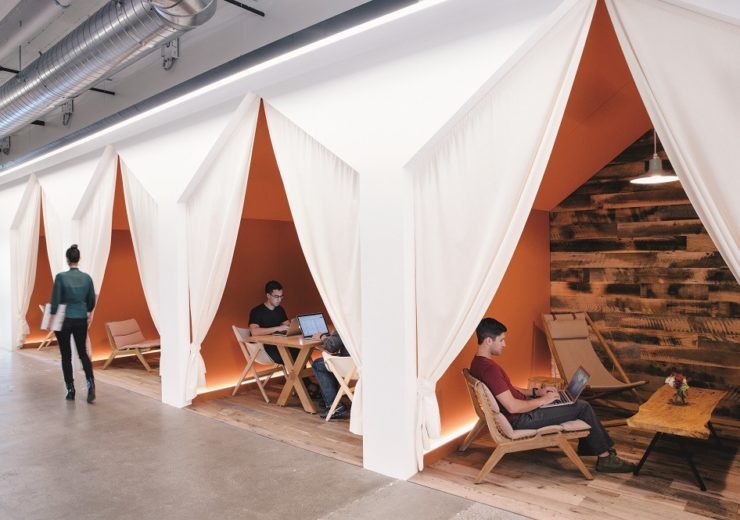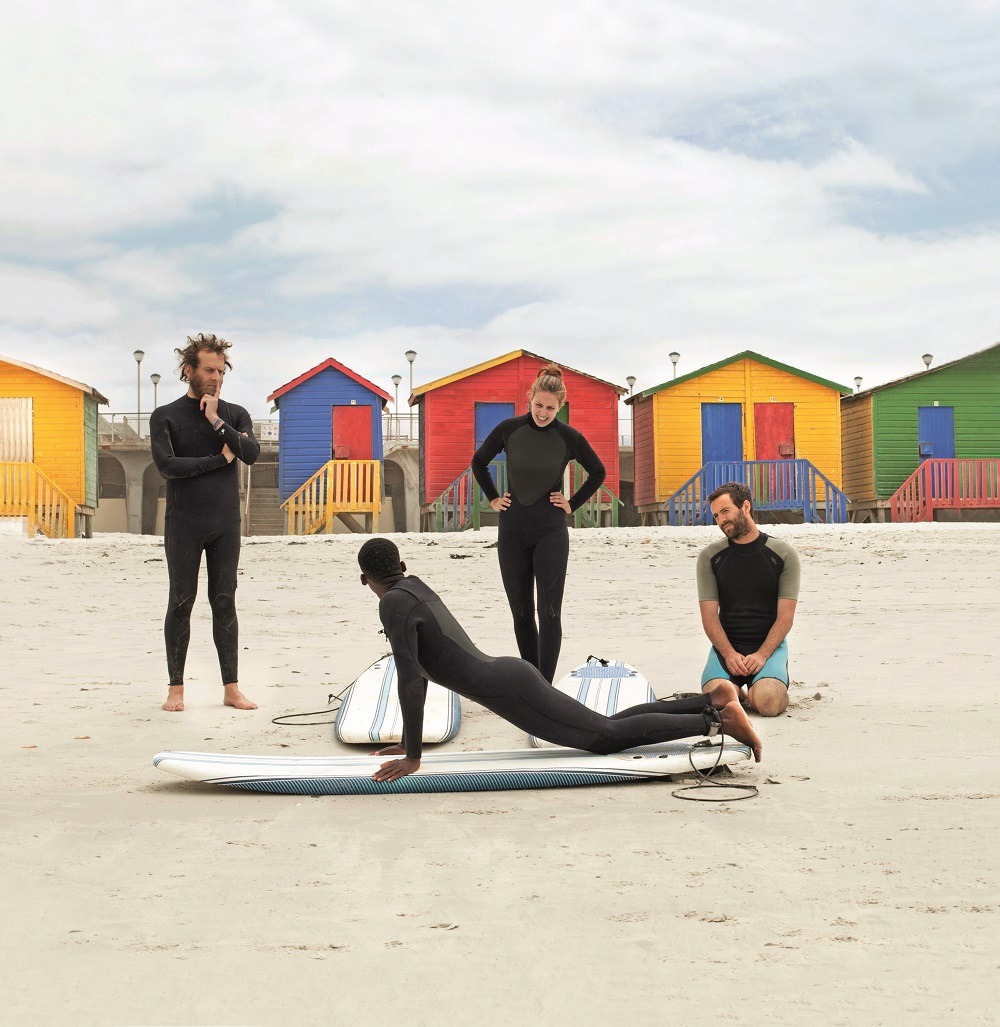Airbnb says it now caters for 15% of work trips - offering employees the chance to stay anywhere from a tree house to a castle

Airbnb for Work offers bespoke business trip accommodation and working areas for employees
Airbnb recently set up a new range of industry-focused facilities to appeal to its business clientele. CEO Journal editor Stephen Hall speaks to David Holyoke, global head of Airbnb for Work, to discover how the world’s most renowned accommodation-sharing site is appealing to its burgeoning cohort of corporate customers with a fresh set of features.
Spotify, Airbnb, Uber, Zipcar, Blablacar and Gumtree are archetypes of the sharing economy, the term used to describe the rising prevalence of companies offering pooled services rather than selling products outright.
The world’s biggest homestay website, Airbnb, was conceived in 2008, presenting travellers with the opportunity to sleep on an air mattress in a stranger’s apartment. As the company has expanded from those humble roots, it has become bigger than most hotel chains, one of the most profitable “unicorns” in the world, worth over $38bn and synonymous with a differentiated holiday experience.
Following the success of Airbnb’s conquering campaign through the hospitality space and with executives turning their backs on hotels, they’ve flocked to the company instead.

While the average business trip may previously have been barely memorable thanks to yet another night spent in an identikit motel, the accommodation-sharing giant has made it possible for industry professionals to stay in an upmarket condo, a treehouse or even a castle.
Beyond the novelty factor, the benefits offered are understandable; managers looking to save money on their “road warriors” can take advantage of the company’s significantly reduced prices. According to the company, the average price for a hotel stands at $170, while the median for Airbnb is $70. Consequently, 15% of work trips are now catered for by Airbnb, and that figure is growing steadily.
What is Airbnb for Work?
To entice this new class of corporate consumer, the business has instigated a range of fresh amenities especially catered to this group. According to David Holyoke, global head of Airbnb for Work, sterile conference rooms aren’t motivating and don’t foster creativity. With this in mind, the company has now set up a platform that enables people to browse a number of business experiences in various categories, including employee wellness and social impact.
“We know there are unique attributes – in addition to corporate travel accommodations – Airbnb can offer companies to help them attract, retain and motivate talent,” Holyoke says. “We hope to see many changes to how businesses and their employees shape the future of work. Experiences on Airbnb offer new learning and development opportunities in more than 800 cities globally, in numerous categories.”
This premise could also translate into increased success within the workplace. Hoylake states that enterprises with engaged employees make two-and-a-half-times the revenue and are 87% more likely to retain their personnel, with team building being one of the most effective factors to increase engagement.
Airbnb is additionally aiming to take advantage of an ever-expanding market for business retreats and has branched out into this regularly parodied, sometimes extolled aspect of corporate life. While the appetite for often groan-inducing company getaways is far from niche, the service marks an expansion into new territory in a successful series of new industry-focused features for the poster boy of the sharing economy.
After a day of meetings, executives can choose between an eclectic mix of activities, such as riding a wave on a surfboard, climbing a mountain or participating in a pizza-making workshop with other like-minded individuals.

“From sailing lessons to pastry-making classes with a Michelin-starred chef, experiences help teams to bond and form meaningful connections,” explains Hoylake. “When people show vulnerability to each other and/or participate in activities together, they connect on a deeper level versus when going out for drinks.”
It is a formula that appears to be working. Nearly 700,000 companies have had employees sign up and make a reservation with Airbnb for Work. Of these companies, more than 300,000 of them are directly engaged with Airbnb to help manage their travel. Holyoke explains that from 2015 to 2016, company bookings tripled, and did so again from 2016 to 2017.
“Airbnb for Work is now more than just business travel. We’re surfacing the best of all Airbnb has to offer to the professional community,” Holyoke enthuses.
Benefits of Airbnb for Work
While executives’ accommodation preferences appear to be shifting, so is the nature of work itself. According to research from freelancing company Upwork, nearly two-thirds of companies have remote workers on their books. And with many employees increasingly turning their backs on a conventional nine-to-five, desk-bound lifestyle, distant employees are also beginning to choose the likes of Airbnb to accommodate a more flexible and roaming existence.
Accommodation on Airbnb features a number of remote-friendly amenities. Many hosts indicate their spaces are suitable for events, for instance, and many have work-friendly amenities like Wi-Fi and self-check in.
“Remote workers can, for example, participate in a team-building experience when colleagues visit them or they visit a company office,” says Holyoke. “Airbnbs also make for great places to get out of the office, away from their home office, and meet with colleagues and clients.”
Holyoke explains that the service offers users the chance to showcase distinctive homes where teams can create and collaborate together. These facilities undoubtedly make sound business sense as, whether it’s the freedom to work remotely or collaborate outside of the office, management consultant company Gallup reports personnel who spend around 60% to 80% of their time away from the office have the highest rates of engagement.
As well as catering to employees’ ability to bolster connections via the medium of cake-baking or another similarly left-field activity, Holyoke states that Airbnb can help personnel cope with the transition between locations and feel like they belong in a new, unfamiliar place.
“Challenges in adapting to a new community account for up to 40% of failed international assignments, and Airbnb is perfectly positioned to help solve this problem,” Holyoke explains.

Only 25% of employees within a company travel for work, but Holyoke states that with Airbnb for Work’s new expansion, the company has an opportunity to bring the 75% that don’t travel onto the Airbnb platform and community.
“People need more than whiteboards and coloured post-it notes. Providing individuals and teams with the freedom they need to grow and collaborate is top of mind for many companies,” Holyoke explains.
“The spaces where people meet make a big difference to their overall experiences. A relaxing environment helps people open up, to connect and contribute; a productive environment helps people achieve their shared goal more effectively and an interesting space helps people experience something new together.
“Much of our new offering is a result of our customers – including HR teams – expressing needs for better ways to work,” he adds. “We’re seeing demand for improved ways to collaborate, create and grow – from single freelancers to companies with over 100,000 employees. Companies like Twitter, Facebook, Europcar and so on are using Airbnb for Work.”
To further appeal to companies that, for one reason or another, prefer their employees to work within the boundaries of an office, Airbnb has partnered with workspace provider WeWork to offer customers the option of a collaborative space away from home.
In addition to this range of features, the company has also instigated a business-centric dashboard. This amenity includes a world map, which clearly displays current and future travellers’ locations. It also displays each professional nomad’s contact information and Airbnb listing details.
As the company continues to add more of these corporate-friendly services to its repertoire and with nearly 3,000 castles and 1,400 tree houses available on the platform globally, the work trip as we know it could be set to become increasingly memorable.
This article originally appeared in the summer 2019 edition of CEO Journal. The full issue can be viewed here.


